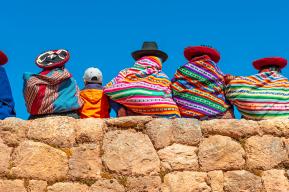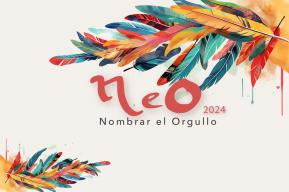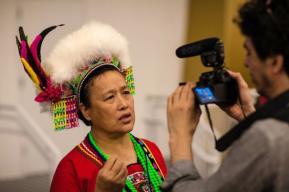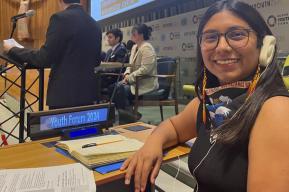News
A global study to strengthen media with Indigenous peoples’ voices

The study will consolidate efforts to fulfil Indigenous peoples’ right to establish and run their own media and have access to all forms of non-indigenous media without discrimination as described in Article 16 of the United Nations Declaration on the Rights of Indigenous Peoples (UNDRIP). The study will also address how States ensure that publicly owned and private media duly reflect Indigenous affairs.
Over the years Indigenous media have evolved from small community-based organizations to a rapidly growing media sector, moving from print to broadcast, and now satellite, private and digital media. This media development has enabled Indigenous peoples not only to recover, preserve and transmit their languages, cultures, and traditions, but also to bring their issues to the attention of the international community and demand fair representation in mainstream media. Media facilitates inclusion and meaningful engagement of Indigenous peoples, contributing to greater respect for diversity of opinion and peaceful co-existence. This, in turn, leads to more pluralistic and democratic societies.
The study will also look not only at how mainstream media portray Indigenous peoples and related issues in their programming, production, dissemination, but also include Indigenous voices and points of view in the treatment of news and current affairs. The study will also tackle measures or mechanisms in media operations and management practices.
The study will make recommendations on the:
- Legal provisions governing the media, such as types of media, licensing, frequencies and other distribution platforms, funding, editorial independence, professional standards, self-regulatory mechanisms.
- Inclusion of Indigenous representation and/or voices in Public Service, State, and private media
- Promotion of good practices, knowledge sharing, collaboration, and international cooperation mechanisms.
Participants will share their insights on the establishment of a coordinating committee to guide the preparation of an evidence-based study. The initial findings and a set of strategic recommendations will be presented at the 2025 session of the United Nations Permanent Forum on Indigenous Issues (UNPFII) in New York. The study will bring Indigenous peoples, media representatives, UN organisations and other stakeholders together at a key time for media pluralism and diversity and presents a great opportunity to work together to advance on the Article 16 of the UNDRIP.








